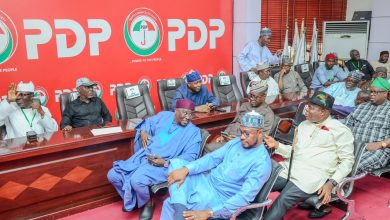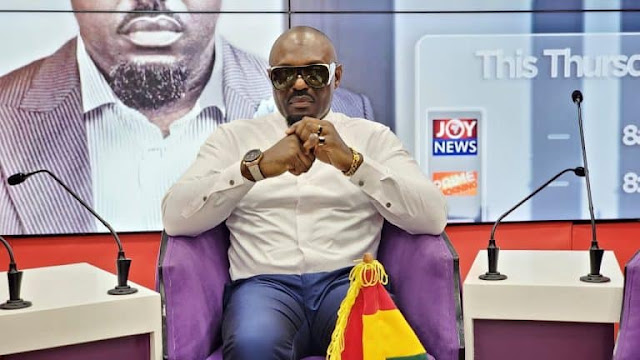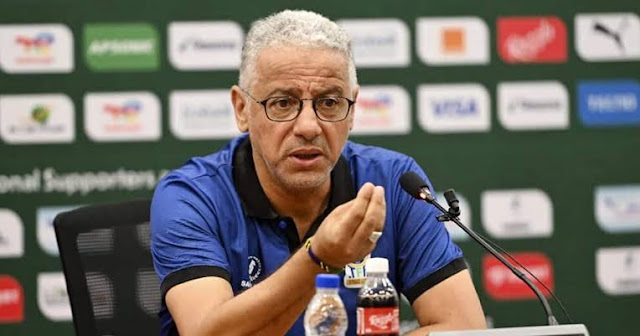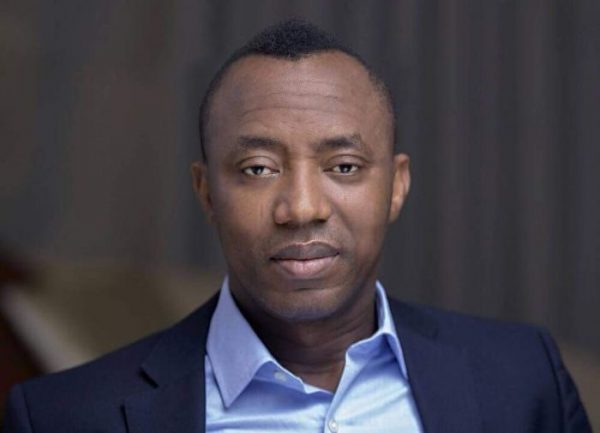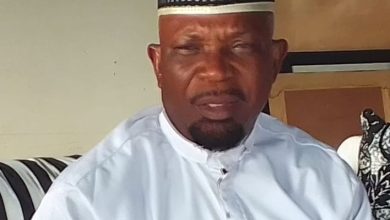As Nigeria’s political landscape continues to evolve in the lead-up to the 2027 general elections, the Peoples Democratic Party (PDP), once the dominant force in Nigerian politics, finds itself grappling with deepening internal divisions. Recent reports have highlighted a significant rift within the party between its governors and loyalists of Barrister Nyesom Wike, the Minister of the Federal Capital Territory (FCT). The conflict revolves around the allocation of critical national positions—specifically the national chairman and national secretary— as the party gears up for its national convention scheduled for November 16, 2025. This dispute, which has been brewing for weeks, underscores the fragile unity within the PDP and raises questions about its ability to present a cohesive front against the ruling All Progressives Congress (APC) in the upcoming electoral battles.
The PDP, founded in 1998 as a coalition of various political interests to usher in the Fourth Republic, has a storied history in Nigerian democracy. It governed the country uninterrupted from 1999 to 2015, producing three presidents: Olusegun Obasanjo, Umaru Musa Yar’Adua, and Goodluck Jonathan. However, the party’s fortunes waned after losing the 2015 presidential election to the APC, and subsequent internal wrangling has only compounded its challenges. The 2023 elections, where the PDP’s presidential candidate Atiku Abubakar was defeated by Bola Tinubu of the APC, exposed deep-seated factionalism, particularly the lingering bitterness from Wike’s fallout with Atiku and his subsequent alliance with the APC-led government. Wike’s appointment as FCT Minister in 2023 was seen by many as a betrayal of PDP principles, yet it has empowered his faction within the party to challenge the status quo. Today, with the national convention approaching, these tensions are coming to a head, threatening to derail the PDP’s reorganization efforts.
The Core of the Dispute: Zoning and Candidate Preferences for National Chairman
At the heart of the clash is the position of the national chairman, a role that wields immense influence over the party’s direction, fundraising, and candidate nominations. Both the PDP governors and Wike’s loyalists concur that the next chairman should be a former governor, arguing that such an individual would bring the necessary gravitas, experience, and respect to lead the party through turbulent times. This consensus on the profile of the candidate is one of the few points of agreement amid the discord. However, the disagreement sharpens when it comes to regional zoning and specific endorsements.
A committee chaired by Governor Douye Diri of Bayelsa State was tasked with reviewing the party’s zoning formula, a mechanism designed to ensure equitable representation across Nigeria’s six geopolitical zones. The committee’s report, which has not been formally adopted but is influencing discussions, recommends zoning the national chairmanship to the North. This broad zoning to the North was intended to balance power dynamics following the tenure of the outgoing chairman, Dr. Iyorchia Ayu, from Benue State in the North-Central. Yet, the committee stopped short of micro-zoning the position further to specific northern sub-regions, leaving room for interpretation and, consequently, conflict.
The PDP governors, representing the party’s state-level powerhouses, have thrown their weight behind Ibrahim Shekarau, a former governor of Kano State from the North-West. Shekarau, who served as Kano’s governor from 2003 to 2011 under the All Nigeria Peoples Party (ANPP) before joining the PDP, is viewed by the governors as a stabilizing figure with a strong administrative track record. His endorsement by the governors is seen as an attempt to consolidate influence in the North-West, a region with significant electoral weight due to its population and history of PDP support. Sources close to the governors’ forum indicate that Shekarau’s candidacy is backed by heavyweights like Governor Bala Mohammed of Bauchi State and Governor Ahmadu Umaru Fintiri of Adamawa State, who see him as a bridge-builder capable of mending fences with northern stakeholders alienated during the 2023 elections.
In contrast, Wike’s loyalists, who control a substantial portion of the party’s grassroots machinery in the South-South and have allies scattered across the country, are advocating for Samuel Ortom, the former governor of Benue State from the North-Central. Ortom, who served as Benue’s governor from 2015 to 2023, brings a wealth of PDP experience to the table. His political resume is impressive: he previously held positions as the PDP national auditor, state secretary, deputy state chairman, and even served as a minister under President Goodluck Jonathan. Wike’s camp argues vehemently that the chairmanship should remain zoned to the North-Central, dismissing Shekarau’s North-West candidacy as an overreach that would disrupt the delicate zonal balance. Insiders reveal that Wike’s initial preference was T.J. Yusuf, a PDP stalwart from Kogi State in the North-Central, but the faction shifted to Ortom after assessing his broader appeal and loyalty to the Wike-aligned group. This pivot is interpreted as a strategic move to counter the governors’ influence, leveraging Ortom’s familiarity with PDP structures to outmaneuver rivals.
The zoning debate has taken on ethnic and regional undertones, with Wike’s loyalists accusing the governors of favoring the North-West at the expense of the North-Central, a zone that has been pivotal in PDP’s northern strategy. “The North-Central has suffered enough marginalization within the party; we cannot allow the chairmanship to slip away now,” one anonymous Wike ally was quoted as saying in party circles. This sentiment echoes broader PDP struggles with internal equity, where zones like the North-Central and South-East often feel shortchanged in power-sharing arrangements.
Escalating Tensions Over the National Secretary Position
Compounding the chairmanship dispute is the contention surrounding the national secretary, the party’s chief administrative officer responsible for coordinating meetings, maintaining records, and ensuring procedural compliance. This position, while seemingly bureaucratic, holds significant sway in convention proceedings and can influence outcomes through its control over documentation and logistics.
A zoning document dated September 1, 2025, signed by three vice chairmen—Ali Odefa (South-East), Ajisafe Kamorudeen (South-West), and Emmanuel Ogidi (South-South)—explicitly zones the national secretary position to the South-West. This arrangement was part of a broader effort by these zonal leaders to streamline the party’s reorganization ahead of the convention. The South-West, home to influential figures like Governor Seyi Makinde of Oyo State, sees this as an opportunity to bolster its presence in the National Working Committee (NWC). Proponents argue that assigning the secretary role to the South-West would empower the zone, which has been underrepresented in top PDP positions despite its economic and political clout in Lagos, Oyo, and Ogun States.
However, this zoning has been fiercely contested by Wike’s loyalists and some other stakeholders, who view it as unbalanced, especially if Makinde emerges as the PDP’s presidential candidate in 2027. Critics, including those aligned with Wike, contend that handing the secretary position to the South-West would “tilt the balance of power in favour of Makinde,” potentially creating a South-West-dominated leadership that marginalizes other zones. In response to these concerns, there have been proposals to swap the national secretary role with that of the deputy national chairman, allowing the South-West to take the deputy slot while redirecting the secretary position elsewhere—possibly back to the South-East or South-South.
Senator Samuel Anyanwu, the outgoing national secretary and a staunch Wike loyalist from Imo State in the South-East, has been vocal in rejecting the zoning arrangement. In a pointed statement, Anyanwu dismissed the authority of Ali Odefa, declaring, “Odefa is no longer a member of the PDP.” This remark stems from a legal battle in Ebonyi State, where a high court reportedly removed Odefa from his position as South-East vice chairman, leading Wike’s camp to recognize Chidi Ebere Egwu as the authentic zonal leader instead. Anyanwu’s intervention has inflamed passions, with Odefa firing back that he would not “join issues with those who decided to go so low,” signaling a personal and acrimonious dimension to the feud.
Wike’s faction is demanding an “inclusive convention,” insisting that zoning decisions must involve all stakeholders and not be dictated by a select few vice chairmen. They argue that Odefa lacks the legitimacy to negotiate on behalf of the South-East, given the court ruling, and are lobbying to retain the secretary position in zones sympathetic to their cause, such as the South-South or South-East. Meanwhile, the South-South is pushing for the national publicity secretary slot, while the national auditor’s position is slated to shift from Anambra to Abia State, both in the South-East, further complicating the power-sharing matrix.
Broader Political Context and Historical Precedents
This internal PDP clash must be understood within the broader context of Nigeria’s multi-party democracy, where intra-party disputes often mirror national fault lines of ethnicity, region, and religion. The PDP’s current turmoil is not isolated; it echoes historical precedents within the party. For instance, the 2018 PDP convention was marred by similar zoning battles, leading to the emergence of Atiku Abubakar as the presidential candidate amid factional infighting. More recently, the 2022 primaries saw Wike challenging Atiku for the presidential ticket, resulting in his defection threats and eventual reconciliation that now appears tenuous.
Wike’s role in this drama is particularly noteworthy. As FCT Minister, he straddles the divide between the APC government and PDP opposition, using his position to build a cross-party alliance known as the G-5 governors (comprising Wike, Ortom, Ifeanyi Ugwuanyi of Enugu, Seyi Makinde of Oyo, and Bala Mohammed of Bauchi). This group, formed in 2021 to demand equity in presidential zoning, has been a thorn in the PDP’s side, with Wike’s loyalty to the party now questioned by many. His loyalists’ push for Ortom—a fellow G-5 member—suggests an attempt to install a sympathetic leadership that could facilitate Wike’s long-term ambitions, possibly positioning him for a future presidential run or maintaining leverage in national politics.
The governors’ faction, led by figures like Diri and Makinde, represents the state executives who control PDP structures at the grassroots level. They argue that their backing of Shekarau is pragmatic, aimed at strengthening the party’s northern base, which was crucial in past victories but weakened in 2023 due to vote-splitting and allegations of rigging. The involvement of Makinde adds another layer: as a young, dynamic governor with national appeal, his potential presidential bid could either unite or further fracture the party, depending on how these positions are resolved.
Statements and Reactions from Key Stakeholders
Public and private statements from involved parties have amplified the discord. Governor Douye Diri, in his capacity as committee chair, has urged restraint, emphasizing that the zoning recommendations are advisory and open to consensus. “We must prioritize unity over personal ambitions,” Diri stated during a recent PDP caucus meeting, though details of the meeting remain confidential.
On the Wike side, insiders have been more combative. Beyond Anyanwu’s dismissal of Odefa, Wike himself has reportedly communicated through proxies, insisting on “fair play” and warning against “imposition by a cabal.” Ortom, the favored candidate, has maintained a low profile but is said to be actively campaigning behind the scenes, leveraging his Benue connections to garner support from North-Central delegates.
Opposition voices within the PDP, including some Atiku loyalists, have watched the clash with concern, fearing it could benefit the APC. Civil society groups like the Yiaga Africa election monitors have called for transparent convention processes, warning that unresolved disputes could lead to legal challenges post-convention, similar to the 2023 election petitions.
Implications for the PDP’s Future and the 2027 Elections
The ramifications of this clash extend far beyond the convention hall. A protracted dispute could erode the PDP’s credibility as an opposition party, making it difficult to challenge the APC effectively in 2027. If the governors prevail, it might solidify state-level control but alienate Wike’s influential network, potentially leading to defections or parallel structures. Conversely, a Wike victory could empower a more aggressive faction, but at the risk of isolating northern governors and weakening the party’s zonal balance.
Economically, the PDP’s internal strife could impact fundraising, as donors may hesitate to invest in a divided party. Politically, it highlights the challenges of zoning in a diverse nation like Nigeria, where equitable power distribution is essential for stability. The convention on November 16, 2025, will be a litmus test: a smooth election of leaders could rejuvenate the PDP, positioning it as a viable alternative government. Failure, however, might result in boycotts, court injunctions, or even a splinter party, reminiscent of the 2018 Reformed-APC merger that bolstered the APC.
In the international arena, observers from the African Union and ECOWAS are likely to monitor the convention closely, given Nigeria’s role as Africa’s largest democracy. A chaotic PDP gathering could undermine Nigeria’s democratic credentials, especially amid global concerns over electoral integrity.
Potential Pathways to Resolution and Reforms
To avert a crisis, PDP stakeholders are exploring mediation options. The Board of Trustees (BoT), chaired by Senator Adolphus Wabara, could convene an emergency session to broker a compromise, perhaps by adopting a hybrid zoning formula that accommodates both Shekarau and Ortom through deputy roles or future promises. Amending the PDP constitution to clarify zoning guidelines might also prevent future disputes, with calls for digital voting at conventions to enhance transparency.
Voter education and youth involvement could bolster the party’s base, ensuring that internal democracy translates to external appeal. International best practices, such as those from South Africa’s ANC, where factional disputes are resolved through inclusive dialogues, could serve as models.
The Road to the Convention and Beyond
As the November 16, 2025, convention looms, all eyes are on Abuja, where delegates from across Nigeria will converge. The clash between PDP governors and Wike loyalists over the national chairman and secretary positions is more than a power struggle; it is a microcosm of the PDP’s existential challenges. Resolving it amicably could pave the way for a revitalized party ready to reclaim power in 2027. Failure to do so risks deepening divisions, potentially handing the APC an unchallenged path to re-election.
In conclusion, this intra-party drama illustrates the complexities of Nigerian politics, where personal ambitions intersect with regional interests. The PDP must navigate these waters carefully to emerge stronger. With the current date of September 7, 2025, marking the intensification of these tensions, the coming weeks will be pivotal. Nigerians, weary of political instability, await a PDP that prioritizes national interest over factional gains.


